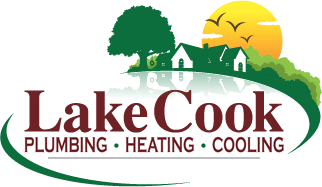5 Signs of a Clogged Drain: Understanding How Drain Clogs Happen
- Drain Cleaning

If you’re like many homeowners, you probably don’t think about your drains until there are obvious signs of problems. There’s nothing wrong with that, but life can be much simpler and less messy if you can get ahead of possible issues before they happen. Understanding the causes of a clogged drain can help you to fix the problem more easily and prevent one from happening in the first place.
How Does a Drain Work?
A drain system consists of a line that runs through the building and connects to the sewer system. The drain also connects to each sink, toilet or washing machine in a home or business. The sink connects with a trap and a pipeline that leads to the drain line and sewer system. It’s a pretty simple system. But, there are multiple places where clogs can cause problems (like in the pipes themselves, or in the traps connecting the sink of a toilet to the plumbing system for example).
How Does a Clogged Drain Occur?
Most often, an accumulation of debris in the pipes and drains create clogs. This can be food from a kitchen sink, or hair and soap buildup from a bathtub or a bathroom sink. When it comes to a toilet, an abundance of toilet paper or things not meant to be flushed can cause clogged drains.
Signs of a Plumbing Blockage
If you’re concerned about a blockage, here are a few signs to look for:
- A slowly draining sink or bathtub.
A slow drain can be the first sign of a problem. This often happens when they diameter of the pipe is constricted by a thickening layer of grime and soap, or because of a blockage somewhere in a pipeline. - A foul odor.
An unpleasant smell can come before a slow drain, potentially, but is a sign of a problem. It could be caused by several things: rotten food in a kitchen sink or drain, even an animal in another area of the drain and sewer system connections. - Toilets that back up instead of flush.
These blockages are often caused by too much toilet paper going down, or more commonly, the wrong things being flushed down the toilet. This is serious because the item blocking the drain could damage the pipeline, or lead to damage to your bathroom as the water comes out of the bowl. If a plunger doesn’t help, you should probably call a professional to examine the pipes and drain system. - Drains that gurgle.
The gurgling noise means that air is trapped somewhere in the plumbing. This could be caused by buildups in the drain, like grease, food, and oil. Food deposits may not always be easy to remove with drain cleaner – sometimes a professional’s high-powered tools, like a hydro-jetter, can remove the clog causing the problem. Damage to the sewer line could be another reason for gurgling in a clogged drain. This issue is far more serious than a clog and usually requires a professional to safely fix the problem. If these are not taken care of, you could find that sewer backs up into the drain system. - Water on your lawn, or plants growing near your sewer line.
This is a little different from the other signs, as those occur inside the home and these are outside. If you have found a puddle in your lawn, you’ll want to have a professional come in to evaluate the drain and take action to remove the clog or damage from the sewer line. Foliage and trees growing near the sewer line can create big problems because the root systems can damage the sewer and water lines underground.
Blocked drains can be more than just a nuisance. For homeowners who pay attention and know what causes these issues, it’s possible it reduces the potential of clogged drain that leads to a major plumbing issue.
Whether you take action to clean the drains yourself or call a professional in, you can be sure that your plumbing systems will be clean and work well – call Lake Cook Plumbing today for all clogged drain services!







